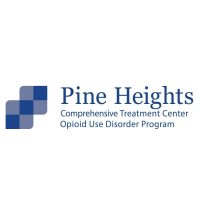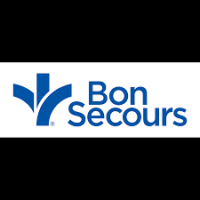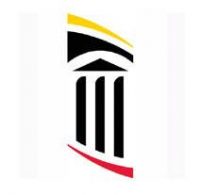Maryland Treatment Centers/Recovery Health Services
Drug Rehab Center in Baltimore, Maryland
Maryland Treatment Centers/Recovery Health Services in Baltimore, Maryland offers a wide range of care and treatment options for individuals struggling with addiction and mental health, including specialized programs and therapies, and accepts private health insurance.
About This Maryland Facility
Maryland Treatment Centers/Recovery Health Services is a Baltimore-based treatment center founded in 1980 which provides a range of care and treatment options for individuals struggling with opioid addiction, substance abuse, drug addiction, alcoholism, dual diagnosis, and mental health. This center is accredited by the Joint Commission on Accreditation of Healthcare Organizations (JCAHO) and accepts private health insurance.
At Maryland Treatment Centers/Recovery Health Services, individuals can access a wide range of care and treatments including aftercare support, drug rehab, dual-diagnosis, inpatient, intensive outpatient, outpatient, partial-hospitalization, detox, and residential services. The center also offers specialized programs for alcohol abuse, dual diagnosis, trauma and PTSD, adolescent substance misuse, medication management, peer support, and gambling addiction. Treatment methods and therapies available include family therapy, group therapy, individual therapy, life skills, motivational interviewing, nicotine replacement therapy (NRT), detox, and medication-assisted treatment (MAT). Additionally, the center provides individualized holistic treatment, health education services, sober-living and half-way houses, relapse prevention, case management, and more.
Genders
Ages
Modality
Additional
Accreditations

JCAHO
Conditions and Issues Treated
Using both legal medications and illegal substances in order to maintain an addiction is substance abuse. If you are taking more of your prescription, or earlier than the prescribed time interval between doses than is directed you may be abusing that medication. If you are obtaining legal medications illegally in or near Baltimore, MD, you may be suffering from substance abuse.
Illegal substances can become addictive after a single use and lead rapidly to substance abuse. The professionals at Maryland Treatment Centers/Recovery Health Services are here to help.
Opioid addiction treatment helps people addicted to opioids in Maryland curb their drug use. The selection of a treatment setting depends on the severity of the addiction. Mild cases are usually treated in outpatient facilities; severe cases need hospitalization or treatment in a residential facility. Doctors use medicines along with counseling and behavioral therapies to treat the addiction. The treatment includes medication, counseling and therapy. It can also include group counseling, individual counseling and family counseling.
Conditions such as anxiety, depression, schizophrenia, bipolar disorder are part of mental illness. This may occur that opioid abuse and vice versa are induced by mental illness. Diagnosing a concurrent diagnosis or co-occurring condition at Maryland Treatment Centers/Recovery Health Services is essential to understand the addiction better.
Levels of Care Offered at Maryland Treatment Centers/Recovery Health Services
This center offers a variety of custom treatment tailored to individual recovery. Currently available are Aftercare Support, Detox, Drug Rehab, Dual-Diagnosis, Inpatient, Intensive Outpatient, Outpatient, Partial-Hospitalization, Residential, with additional therapies available as listed below.
Detox is a drug rehab process that begins before the actual drug rehab treatment. It is used to remove any residual toxins left in your body (and brain) after using drugs, and it is used with the intent to help you or your loved one complete drug rehab.
If you are addicted to opiates like heroin, methadone, or prescription painkillers, you will detox with medication. This is because the withdrawal symptoms are often more intense and uncomfortable for an opiate addict than for someone who has abused or is dependent on other drugs, like cocaine.
Inpatient programs are intensive regimes that require individuals suffering from serious addictions to admit themselves into a controlled environment. Inpatient programs in Maryland generally span over 28 days to six months. The first step in an inpatient program is medically assisted detox. Doctors and addiction specialists at Maryland Treatment Centers/Recovery Health Services monitor the individual’s vital signs as the drugs leave their system. Some inpatient rehab programs also provide counseling for family members to provide encouragement and emotional support. In inpatient programs, patients have access to 24-hour medical supervision.
To assist with alcohol or opioid abuse, or a co-occurring condition, Maryland Treatment Centers/Recovery Health Services offers an outpatient treatment program. For their rehabilitation and other services, the Maryland patient will go to the treatment center, yet return home every night. After most of the program is completed, the level of mandatory participation reduces.
A partial hospitalization program is set up to cover those struggling with acute symptoms of addiction. This means that the individual is cared for in a hospital-like environment in Baltimore, MD during the struggle of those symptoms, but allowed to go home at night. Most PHPs require approximately six-hours of therapy, at least three days per week.
Residential treatment programs are those that offer housing and meals in addition to substance abuse treatment. Rehab facilities that offer residential treatment allow patients to focus solely on recovery, in an environment totally separate from their lives. Some rehab centers specialize in short-term residential treatment (a few days to a week or two), while others solely provide treatment on a long-term basis (several weeks to months). Some offer both, and tailor treatment to the patient’s individual requirements.
Aftercare comprises services that help recovering addicts readjust to normal day-to-day Maryland activities. It can last a year or even longer. Services include individual and family counseling, medications to reduce cravings, and treatment of psychiatric and other medical conditions. Aftercare support begins once you have completed earlier stages of treatment.
Therapies & Programs
Therapy plays a major role in addiction recovery. It encourages patients to get to the root of their addiction and learn how to better handle the issues that led to using. Therapy can be conducted in group and one on one settings. In Maryland Treatment Centers/Recovery Health Services‘s individual therapy, the patient meets with the therapist in a one on one setting. This allows them to focus on the underlying issues of addiction and come up with solutions to prevent future abuse.
When the whole family is involved, healing can be far more successful. Family counseling involves genetic factors to the family of the addict. This offers the means to cope with addiction and its underlying emotional disorders for loved ones. It is a helpful method for addicts in helping to adjust to sober living.
Training someone on improved life skills allows for someone recovering from an addiction to feel more capable at taking care of him or herself. The skills taught at Maryland Treatment Centers/Recovery Health Services in Baltimore, MD are daily skills that give a better recovery foundation by simply giving someone the tools they need to survive. They include communicating, time and money management, career guidance, and more.
Payment Options Accepted
For specific insurance or payment methods please contact us.
Is your insurance accepted?
Ask an expert, call (888) 674-0062
Additional Details
Specifics, location, and helpful extra information.
Baltimore, Maryland 21229 Phone Number(410) 233-1400 Meta DetailsUpdated November 25, 2023
Staff Verified
What else do people call Maryland Treatment Centers/Recovery Health Services?
People have occasionally also searched for “Mountain Manor Treatment Center Outpatient/Baltimore/Frederick Avenue in Maryland”
Patient Reviews
There are no reviews yet. Be the first one to write one.
Baltimore, Maryland Addiction Information
For the past decade, Maryland's rate of drug use and abuse has significantly increased. The overdose rate is currently higher than the national average. This epidemic is due to the many industries where manual labor is required. As soon as prescription opioids were more readily accessible a large part of manual workers started using–and eventually abusing–the painkillers.
According to recent statistics, there are around 33,000 people who are addicted to drugs in Baltimore. Heroin-related overdose deaths are quite high in Baltimore, at 837 per 100,000 residents in 2016. Baltimore's most commonly abused drugs include heroin, cocaine, and marijuana. The people of Baltimore are friendly and welcoming, and there's always something going on. If you're looking for a place to start fresh, Baltimore is the perfect place.
Treatment in Nearby Cities
- Leonardtown, MD (68.7 mi.)
- Lexington Park, MD (71.9 mi.)
- Andrews Afb, MD (35.4 mi.)
- Catonsville, MD (2.9 mi.)
- White Plains, MD (49.9 mi.)
Centers near Maryland Treatment Centers/Recovery Health Services
The facility name, logo and brand are the property and registered trademarks of Maryland Treatment Centers/Recovery Health Services, and are being used for identification and informational purposes only. Use of these names, logos and brands shall not imply endorsement. RehabNow.org is not affiliated with or sponsored by Maryland Treatment Centers/Recovery Health Services.









